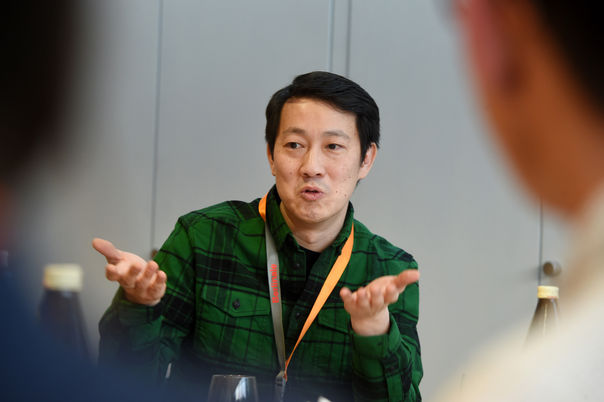Footage Rights
By Héctor Oyarzún

Filmmaker Kevin B. Lee
Kevin B. Lee is a filmmaker, film critic and one of the most prolific video-essayists, with more than 300 works under his name. His “desktop documentary” TRANSFORMERS: THE PREMAKE was praised as a work that defied genre definitions. His work updated the found-footage genre and it opened artistic ways to explore film criticism on Internet platforms. I sat down with Lee at Berlinale Talents to discuss the political aspects of video essays, film footage rights and his views on his work’s evolution.
How do you think found-footage changed after the Internet?
In the 60s, and earlier, there were artists who were using found-footage in a way that was much more radical and critical. Then in the 90s, media became much more personalized, and in the 2000’s with the Internet, the ability for people to use found-footage became a lot easier. It sounds like a great thing, but the problem is it seems harder to have this critical viewpoint because people take as normal that we live in a society that consumes media.
What do you think about how video-essays introduce technical concepts of film to a wider audience?
It is really important for the audience to understand how films are put together, but one thing that is missing from these analyses is a sense of poetics. The other thing that is missing is an awareness of the social-political dimensions of film. Using found-footage is like saying: “I have a social and personal right to do something with this.” But that comes with a second question: What do I do with it that is worthy of this right?
Is there a need to take a step forward with video-essays?
I’m thinking about your TRANSFORMERS: THE PREMAKE and kogonada’s COLUMBUS?
This practice is about how to exercise my thinking through audiovisual form. I’m always going to look to films and media as my subject, but it is the way that I engage with it that hopefully can create a new form and style.

